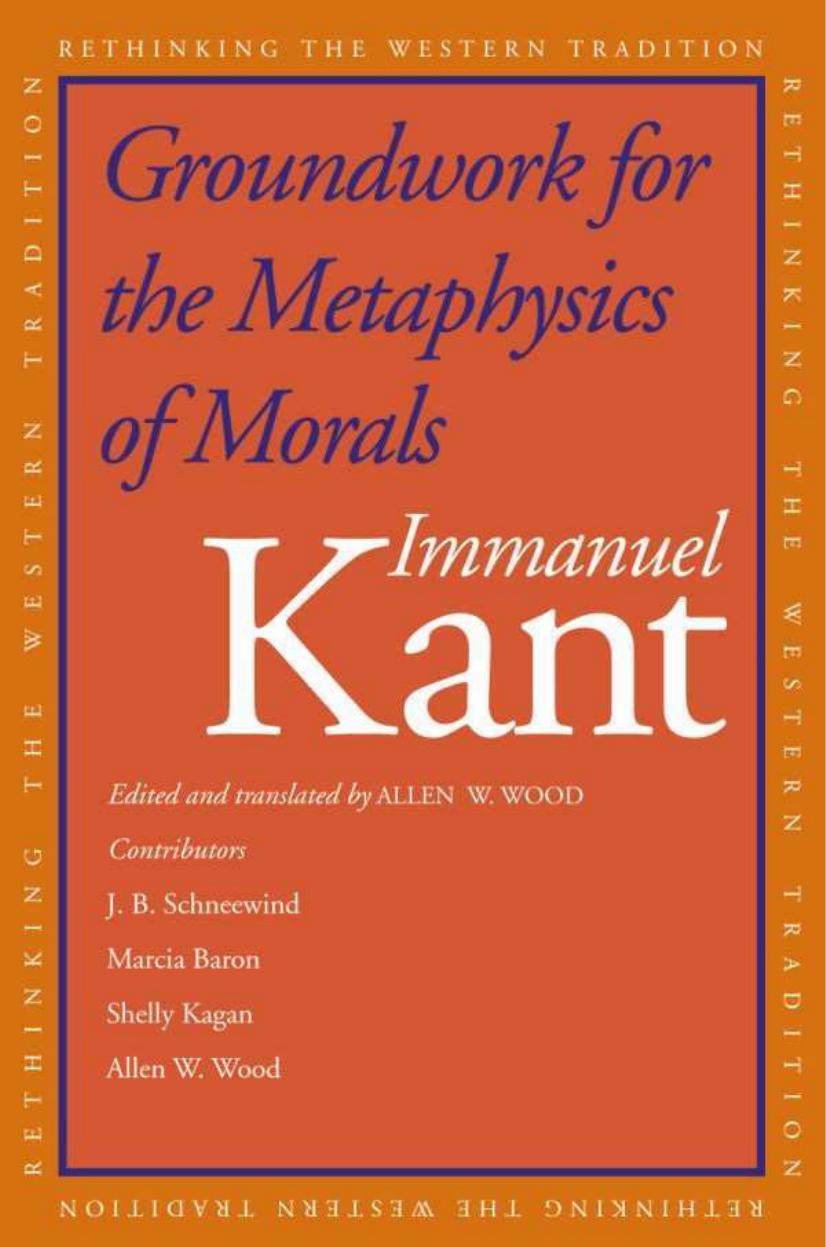Groundwork for the Metaphysics of Morals by Immanuel Kant

Author:Immanuel Kant [Kant, Immanuel]
Language: eng
Format: epub, pdf
Publisher: Yale University Press
Published: 2002-01-11T16:00:00+00:00
Third section
Transition from the metaphysics of morals to the critique of pure practical reason
[Ak 4:446]
The concept of freedom is the key to the definitiona of autonomy of the will.
The will is a species of causality of living beings, insofar as they are rational, and freedom would be that quality of this causality by which it can be effective independently of alien causes determining it; just as natural necessity is the quality of the causality of all beings lacking reason, of being determined to activity through the influence of alien causes.
The proposed definitionb of freedom is negative, and hence unfruitful in affording insight into its essence; yet from it flows a positive concept of freedom, which is all the more rich in content and more fruitful. Since the concept of a causality carries with it that of laws in accordance with which must be posited, through that which we call a cause, something else, namely its result; therefore freedom, even though it is not a quality of the will in accordance with natural laws, is not for this reason lawless, but rather it has to be a causality in accordance with unchangeable laws, but of a particular kind; for otherwise a free will would be an impossibility.c Natural necessity was a heteronomy of efficient causes; for every effect was possible only in accordance with the law that something else determined the efficient cause to causality; what else, then, could the freedom of the [Ak 4:447] will be, except autonomy, i.e. the quality of the will of being a law to itself? But the proposition: “The will is in all actions a law to itself,” designates only the principle of acting in accordance with no other maxim than that which can also have itself as a universal law as its object. But this is just the formula of the categorical imperative and the principle of morality: thus a free will and a will under moral laws are the same.
Thus if freedom of the will is presupposed, then morality, together with its principle, follows from this, through the mere analysis of its concept. Nonetheless, the latter is always a synthetic proposition: an absolutely good will is that whose maxim can always contain itself considered as universal law, for through analysis of the concept of an absolutely good will that quality of the maxim cannot be found. Such synthetic propositions, however, are possible only when both cognitions are combined with one another through the connection with a third in which they are both to be encountered.1 The positive concept of freedom makes fora this third, which cannot be, as with physical causes, the nature of the world of sense (in whose concept the concepts of something as cause comes together in relation to something else as effect). What this third thing must be, to which freedom points and of which we have an idea a priori, still cannot be directly indicated here, and to make comprehensible the deduction of the concept of freedom from
Download
Groundwork for the Metaphysics of Morals by Immanuel Kant.epub
Groundwork for the Metaphysics of Morals by Immanuel Kant.pdf
This site does not store any files on its server. We only index and link to content provided by other sites. Please contact the content providers to delete copyright contents if any and email us, we'll remove relevant links or contents immediately.
The remains of the day by Kazuo Ishiguro(7540)
Tools of Titans by Timothy Ferriss(6934)
The Black Swan by Nassim Nicholas Taleb(6182)
Inner Engineering: A Yogi's Guide to Joy by Sadhguru(5886)
Giovanni's Room by James Baldwin(5870)
The Way of Zen by Alan W. Watts(5787)
The Six Wives Of Henry VIII (WOMEN IN HISTORY) by Fraser Antonia(4784)
The Power of Now: A Guide to Spiritual Enlightenment by Eckhart Tolle(4747)
Astrophysics for People in a Hurry by Neil DeGrasse Tyson(4613)
Asking the Right Questions: A Guide to Critical Thinking by M. Neil Browne & Stuart M. Keeley(4564)
12 Rules for Life by Jordan B. Peterson(3722)
The Ethical Slut by Janet W. Hardy(3494)
Skin in the Game by Nassim Nicholas Taleb(3455)
Housekeeping by Marilynne Robinson(3395)
The Art of Happiness by The Dalai Lama(3376)
Double Down (Diary of a Wimpy Kid Book 11) by Jeff Kinney(3267)
Skin in the Game: Hidden Asymmetries in Daily Life by Nassim Nicholas Taleb(3259)
Walking by Henry David Thoreau(3227)
12 Rules for Life: An Antidote to Chaos by Jordan B. Peterson(3195)
